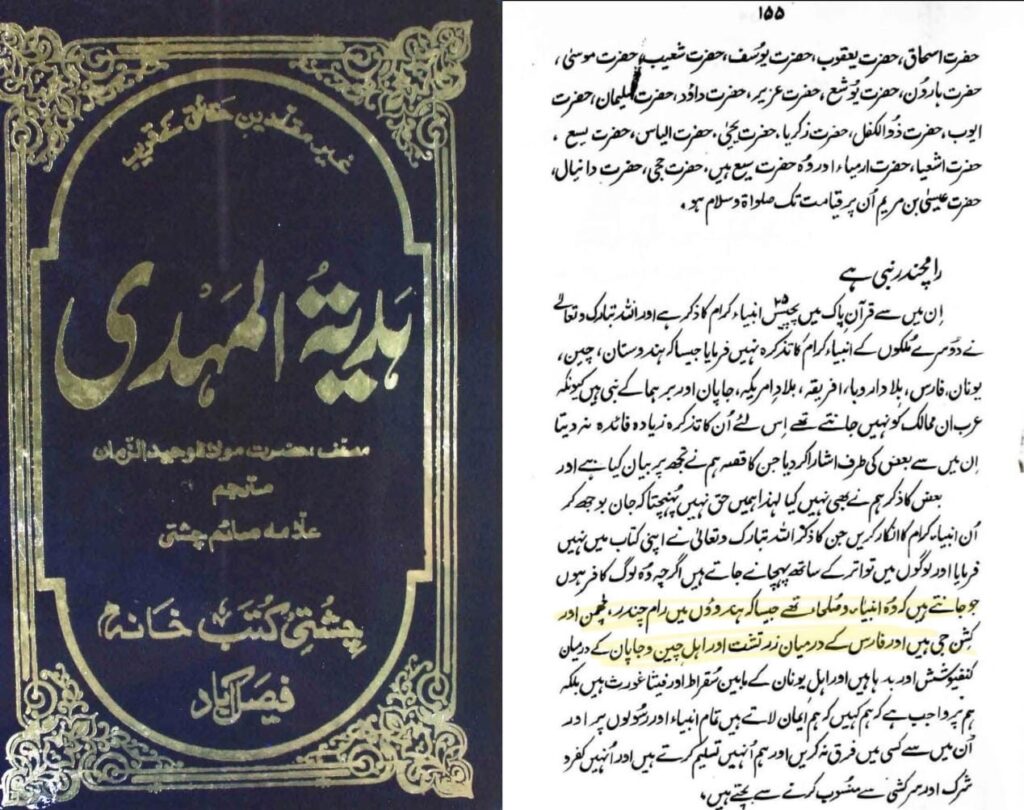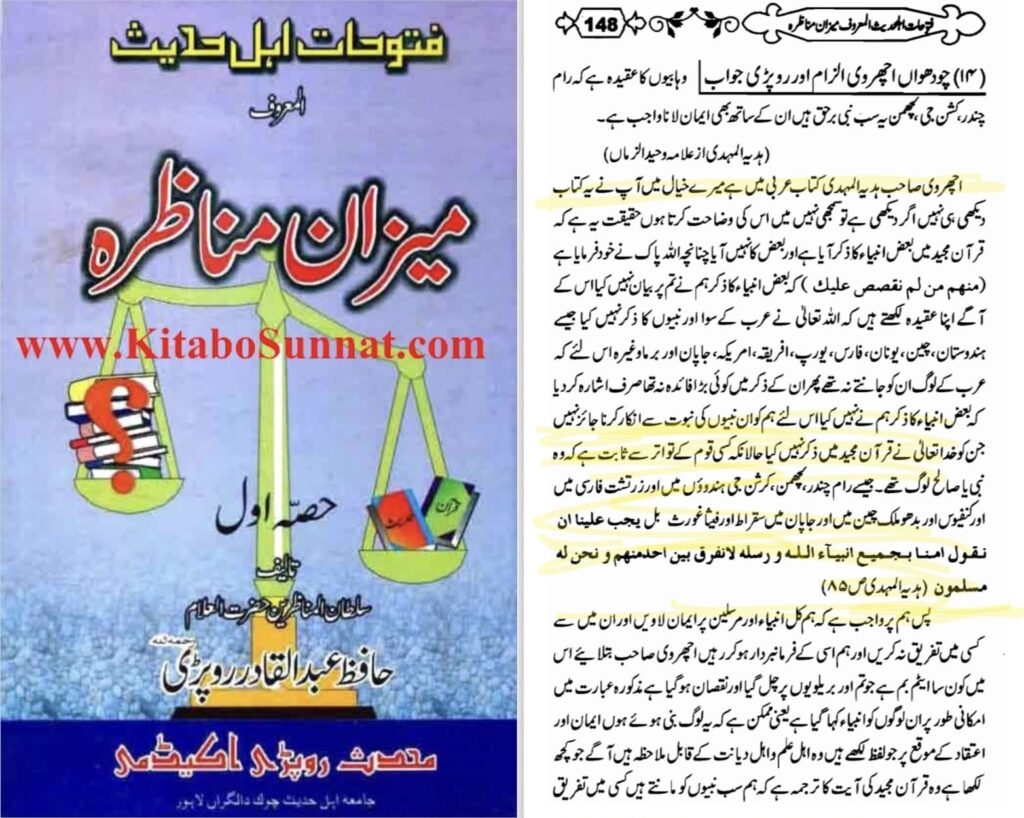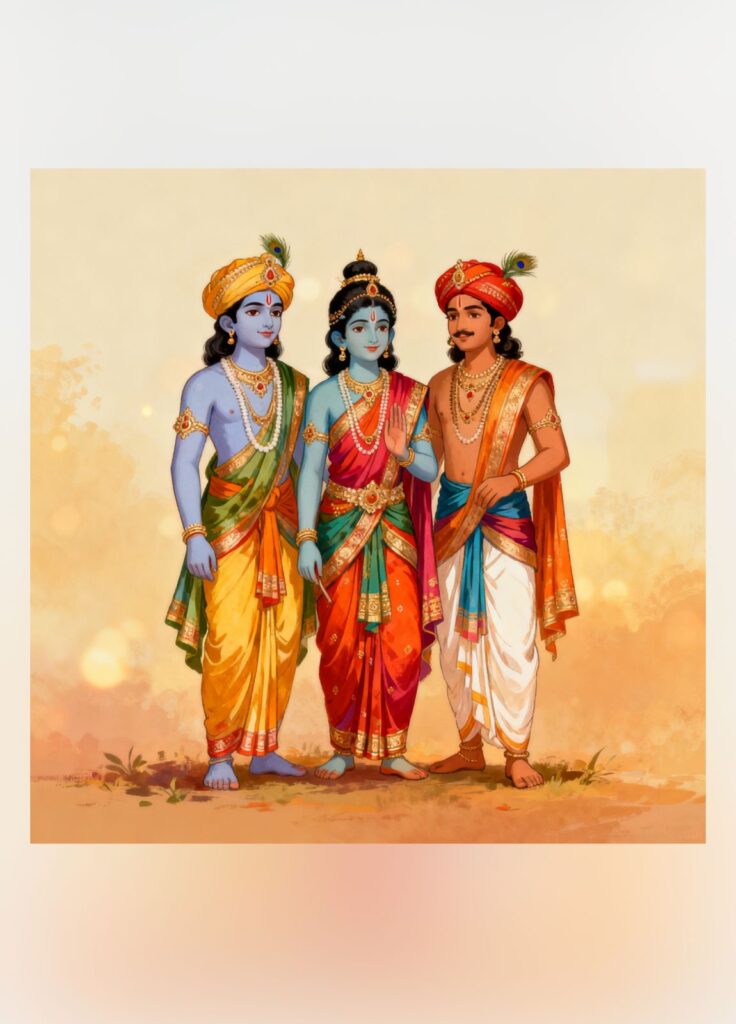Allamah Waheed uz Zaman Siddiqi was a distinguished Indian scholar, translator, and lexicographer. Whilst he was primarily regarded as a Salafi scholar not Deobandi, although he shared some academic and institutional overlaps with Deoband. Renowned for his immense contribution to Arabic–Urdu scholarship, he authored the widely used dictionaries Al Qamoos al Wahid and Al Qamoos al Jadeed, which bridged the linguistic gap between Arabic and Urdu speakers. He also translated and annotated major Hadith compilations such as Sahih al-Bukhari (Tayseer al-Bari) and Sahih Muslim into Urdu, making them accessible to a wider audience. Beyond translation, he played a key role in reforming Arabic education in South Asia through works like Al-Qira’at al-Wazihah, leaving a lasting legacy in Islamic education, language studies, and Urdu religious literature.
In one of his later works he opines:
It is not permissible for us to deny the prophethood of those other prophets whom Allah the Almighty has not mentioned in the Holy Qur’an, but who are known among disbelieving nations through continuous transmission. There is no doubt that they were righteous prophets such as Rama Chandra, Lakshman, and Krishna among the Hindus; Zoroaster among the Persians; Confucius and Mahatma Buddha among the Chinese and Japanese; and Socrates among the Greeks. It is obligatory upon us to say that we believe in all these prophets, making no distinction between any of them, and that we are obedient to all of them.

Hidayat al-Mahdi, p. 155
The Salafi scholar Hafiz Abdul Qadir Sahib Roopri defended this statement, saying:
“The truth is that some prophets are mentioned in the Qur’an, and some are not.
Allah (swt)has not mentioned prophets other than those of the Arab lands for instance, those from India, China, Greece, Persia, Europe, Africa, America, Japan, and Burma.
Therefore, it is not permissible to deny the prophethood of those prophets”.
He then cites Waheed uz Zaman Siddiqi and writes:
“Hence, it is obligatory upon us to believe in all prophets and not to make any distinction among them”.

Futuhat Ahl al-Hadith, p. 148
Comment
So, according to these Salafi scholars, Rama, Lakshman, and Krishna were prophets, Buddha was divinely inspired, and Socrates was apparently receiving revelation between philosophical debates, which means that if you ever find yourself in a theology quiz with a Indo Subcontinent Salafi / Deobandi lexicographer, don’t be surprised if your “list the prophets” answer includes characters from the Mahabharata, a Greek philosopher, and a Persian mystic.

